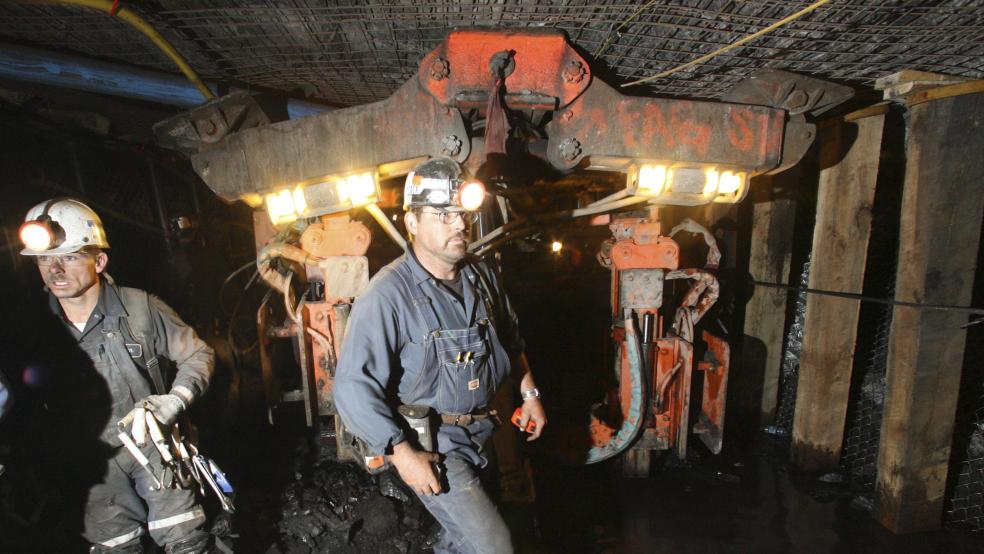Will “King Coal” politics derail negotiations over a massive $1 trillion annual spending bill that is essential to averting another government shutdown in mid-January?
A bruising partisan battle over a new Environmental Protection Agency regulation designed to sharply reduce permissible carbon dioxide emissions at new coal-fired power plants has slowed the pace of the talks despite lingering good will from the success of Ryan/Murray budget deal –a deal that would keep the government funded through fiscal 2014 and 2015.
Sen. Barbara Mikulski (D-MD) and Rep. Harold Rogers (R-KY), the chairmen of the Senate and House Appropriations Committees, had hoped to have the spending package pretty much wrapped up before New Year’s Day, and vowed not to allow a myriad of controversial policy issues to stand in the way of a final deal.
However, sharp differences over environmental and energy production issues are definitely “causing tension” between the two sides that are slowing things up, according to a congressional Democratic aide who is familiar with the pace of the negotiations.
House Republicans are pressing for a “rider” or amendment to the giant spending bill that would block or impede implementation of the EPA regulation. The new rule, formally unveiled in September, would require new coal-burning power plants to use expensive new technology to capture at least 40 percent of carbon dioxide emissions--which scientists say contribute directly to climate change.
Related: Will Obama Regulations Kill the Coal Industry?
Environmentalists have hailed the new rule promulgated under the Clean Air Act as a major step towards addressing the mounting dangers associated with global warming. But an alliance of coal and utility companies and their allies warn that the new rule is economically unfeasible and would effectively ban the construction of new coal-fired power plants.
“Our president continues to promote a radical, job-crushing environmental agenda at the expense of hard-working Kentuckians,” Rogers said last fall after the regulation was announced. “These overreaching, unworkable greenhouse gas regulations will cost thousands more jobs and increase energy costs for every household, small business and our seniors on fixed incomes.”
The battle over the EPA rule and its impact on the crucial spending talks underscores the continued political potency of the coal industry and its allies, even as the nation is burning far less coal to generate electricity than it did five years ago. Over the past few years, natural gas has become extraordinarily cheap because of new techniques for extracting gas from shale rock. Moreover, many Appalachian region mines are closing because of tough competition from Wyoming mines. And power plant operators in the South and portions of the Northeast shut down their oldest, most inefficient plants even before the recent wave of EPA air pollution rules.
Coal mining and related activities are a way of life for many in a small handful of states, including Kentucky and West Virginia, and Republican and Democratic lawmakers alike must pay fealty to “King Coal.”
Related: McConnell, the Senate’s ‘Dr. No,’ Emerges as Key Deal Maker
Senate Minority Leader Mitch McConnell (R-KY), who faces a tough reelection challenge next fall, has denounced the EPA rule as “another back door attempt by President Obama to fulfill his long-term commitment to shut down our nation’s coal mines.”
Another hard-fought contest in West Virginia to succeed retiring Democratic Sen. Jay Rockefeller may hinge on whether voters hold the Democratic candidate responsible for the Obama administration’s coal industry and climate change policies–even though the Democrat has widely condemned the new EPA regulation. Democrat Natalie Tennant, the West Virginia Secretary of State, denounced the president’s policy as a job killer, as did her GOP rival, Rep. Shelley Moore Capito.
“I think [Obama] has not fairly looked at what’s taking place within West Virginia,” Tennant said recently, according to The New York Times. “A policy like that hurts jobs for the people of this state.”
Top Reads from The Fiscal Times:




